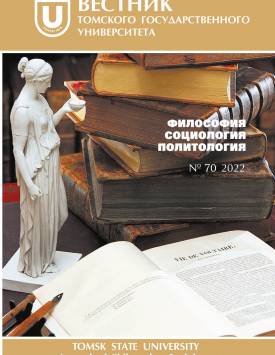Cluster semantics for some modal and intuitionistic systems
In modern logic, one of the main tools for clarification of modal operator’s meaning is the so-called possible world’s semantics based on the concepts of model structure, possible world, and binary relation of accessibility structuring a set of possible worlds. These concepts are considered to be a natural elaboration of certain methodological principles, which hark back at least to Leibnitz’s philosophy and appear to be evident. However, in the author’s opinion, their meaningfulness, justifiability and formal correctness can be called into question. For instance, an accessibility relation in the possible world’s semantics is implicitly used as an analogue of a certain empirical procedure capable of discovering of some extra connections between possible worlds, which have not been caught initially in logical system axioms. According to the author, such a treatment is utterly incorrect. When constructing the original possible world’s semantics, an accessibility relation in different systems was enriched with certain additional restrictions (reflexivity, transitivity, etc.) due to the specificity of modal axioms, not vice versa. That is why an accessibility relation, as well as all other notions of possible world’s semantics, virtually remain formal and do not clarify properly the meaning of modal operators. An alternative method of semantic construction for some normal modal systems, which was firstly proposed by Yuri Ivlev, presupposes analyses of certain restrictions of possible truth-values of propositional variables of a formula with modal operators. As a result, some state-descriptions can be excluded from an initial state-descriptions set for the formula. Thus obtained clusters - restricted sets of state-descriptions and their ordered sequences - prove to be equivalent to model structures of possible world’s semantics for Lewis’s system S5, S46 and basic Heyting’s system Int. Possible world is interpreted as a classical state-description. Cluster semantics rely on purely traditional notions of logical truth, falsity, logical indeterminacy of system statements, etc. Besides that, meaning of modal operators in these semantics is clarified by means of finite sets of clusters, whose effective enumeration can be implemented by linear arithmetic functions. The author declares no conflicts of interests.
Keywords
cluster, model structure, possible worldAuthors
| Name | Organization | |
| Arkhiereev Nikolay L. | Bauman Moscow State Technical University | arkhnl@bmstu.ru |
References

Cluster semantics for some modal and intuitionistic systems | Tomsk State University Journal of Philosophy, Sociology and Political Science. 2022. № 70. DOI: 10.17223/1998863X/70/2
